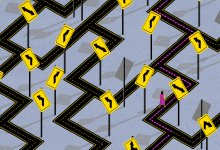Curriculum Planning
Looking for ways to develop dynamic, compelling, and standards-based course content and activities? This is the place to start.
Integrating Spontaneous Learning Into Pre-K Curriculum
Teachers can use moments when children express curiosity as entry points to foster deep learning within planned lessons.1.5kYour content has been saved!
Go to My Saved Content.Why Learning at Home Should Be More Self-Directed—and Less Structured
On March 18, 2020, Simone Kern tweeted that simply “recreating schools at home” passes up a golden opportunity to engage kids in authentic, self-directed learning.629.7kYour content has been saved!
Go to My Saved Content.6 Techniques for Building Reading Skills—in Any Subject
Students need good reading skills not just in English but in all classes. Here are some ways you can help them develop those skills.742.2kYour content has been saved!
Go to My Saved Content.What’s the Right Amount of Homework?
Decades of research show that homework has some benefits, especially for students in middle and high school—but there are risks to assigning too much.583.1kYour content has been saved!
Go to My Saved Content.5 Highly Effective Teaching Practices
We teachers are always looking to innovate, so, yes, it's essential that we try new things to add to our pedagogical bag of tricks. But it's important to focus on purpose and intentionality -- and not on quantity. So what really matters more than "always trying something new" is the reason behind why we do what we do.573.4kYour content has been saved!
Go to My Saved Content.60-Second Strategy: Framing the Lesson
When teachers make their teaching and learning goals clear to their class, every activity has a purpose and every student understands what they’re doing.Benefits of Using Skills-Based Instruction in Advanced Placement Courses
With a years-long shift to skills-based instruction and grading, this district found an unexpected outcome—an increase in AP scores.3.8kYour content has been saved!
Go to My Saved Content.Designing Science Inquiry: Claim + Evidence + Reasoning = Explanation
The Claim, Evidence, Reasoning framework is a scaffolded way to teach the scientific method.595.5kYour content has been saved!
Go to My Saved Content.How to Plan When You Don’t Know What to Plan For
What school will look like in the fall is still uncertain for most of the U.S., but teachers can develop flexible plans that work for distance and in-class teaching.240.7kYour content has been saved!
Go to My Saved Content.What Is Your Educational Philosophy?
While lesson planning this summer, educators might also take time to reflect on their core beliefs about learning and teaching.443.2kYour content has been saved!
Go to My Saved Content.Kindness: A Lesson Plan
Classroom activities and resources for developing a vital character trait.347.2kYour content has been saved!
Go to My Saved Content.Using a Learning Map to Build Exemplary PBL Units
By developing—and revisiting—an instructional roadmap that connects standards, activities, and skill development, these teachers put students on a path toward mastery.The Benefits of a High School Psychology Class
Students gain not just social and emotional learning skills but academic ones like how to conduct and analyze research.213.8kYour content has been saved!
Go to My Saved Content.Gender Equity in the Classroom
Some ideas on how to minimize gender bias in our teaching practice and curriculum.247kYour content has been saved!
Go to My Saved Content.Translating Standards Into Student-Friendly Terms
Designing an effective assessment requires first deconstructing the standards into clear criteria of success that students can understand.7.6kYour content has been saved!
Go to My Saved Content.













